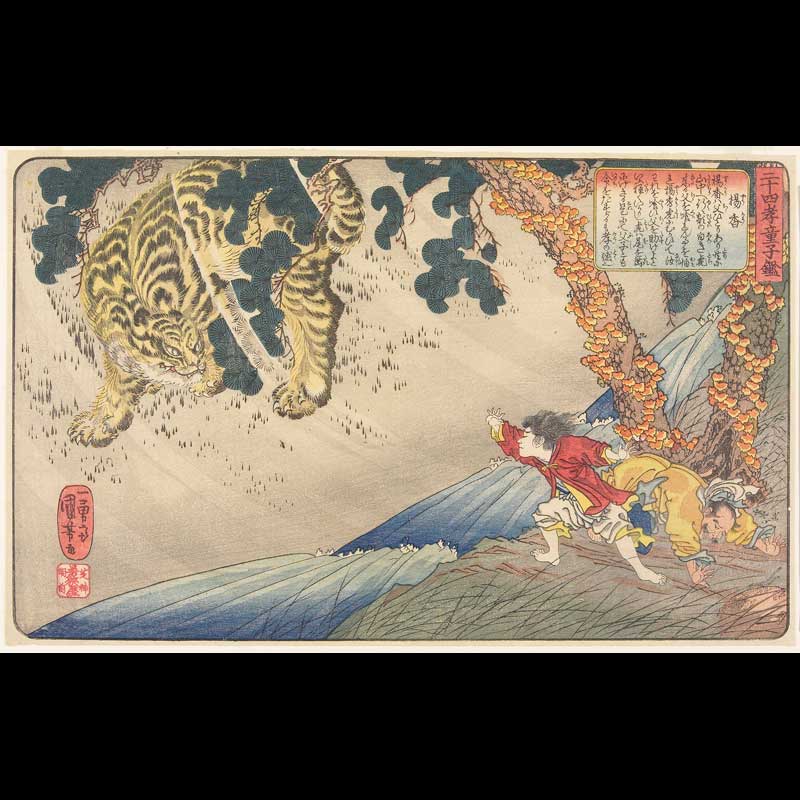Yōkō
From the series Mirror of Twenty-four Paragons of Filial Piety, 1844–46
Color woodblock print (nishiki-e)
Gift of Louis W. Hill, Jr. P.78.65.60
Cat. no. 146
Paragons of filial piety have been an enduring theme in Chinese art and literature since the time of the famous sage Confucius (551–479 B.C.), whose teachings stressed the importance of absolute devotion to one’s parents and elders. Japan’s Tokugawa leaders frequently commissioned painters to render the filial subjects, thereby helping to establish this tradition in Japan. Ukiyo-e artists also picked up the theme, and Utagawa Kuniyoshi featured the twenty-four paragons on several occasions.
The subject here is the story of Yōkō (Yang Xiang, in Chinese) and his father. These two were attacked by a fierce tiger in the mountains. Without thinking of his own safety, Yōkō shielded his father with his own body while demanding that the tiger devour him rather than his father. Impressed with the youth’s bravery, the tiger retreated into the forest, sparing both father and son.

